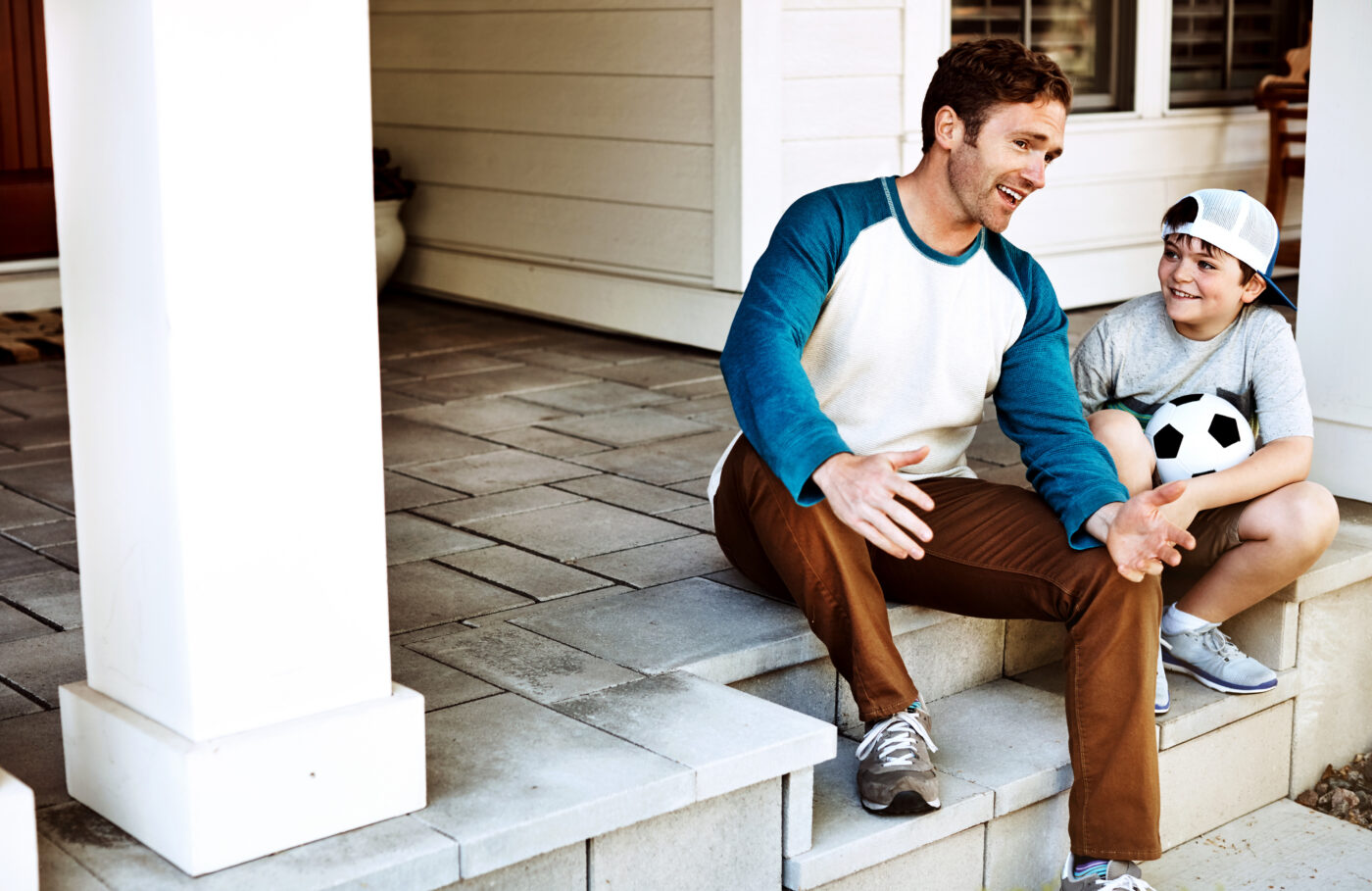At the gym recently, I saw two teenage boys “working out.” One was loudly swearing; the other was laughing but just along for the ride. When the manager confronted them, he asked both to come into his office. I watched through the glass office walls. While the swearing kid had obviously sworn that he would always be a swearer, the other kid looked scared to death.
A few minutes later, the second kid’s dad walked in and, within two minutes, stormed out and said, “Do what you want with him. I don’t know what happened. I wasn’t there!” My heart broke for the kid. Not because the dad was too tough, but because he wasn’t present. He didn’t ask his son what happened. He didn’t try to understand. And he missed a moment to support without rescuing.
As dads, we often swing between two extremes: jumping in too fast or checking out completely. But there’s a middle way, a better way, that helps in raising resilient children without abandoning them to figure it all out alone. These 5 ideas can help you raise resilient children without jumping into every single struggle they face.
1. Really Listening
Our phones, work, and a million other things can often distract us from our kids. So when our kids are facing a battle, battle with all you are to listen. Of all the gifts we can give a kid, listening to our kid is one of the biggest. We all just want to be heard. Listening doesn’t mean you always agree with your kid’s reasoning or behavior; it just means you care enough to really understand where they are coming from. Often, once a kid knows you understand, even if they still face consequences, it calms them emotionally because you cared enough to listen.
2. Helping Them Process
I’ve always had some sort of DIY project going on at my house. Early on, I made the commitment that while I would teach my kids and show them, I would let them do as much as they could on their own. Kids learn to hammer, drill, and nail better when, once we’ve shown them how, we let them try on their own. We have to do the same thing when they’re processing a situation—like when a friend hurts their feelings and they’re trying to figure out what to say; when they fail a test and want to give up on the whole class; or when they don’t make the team and aren’t sure they want to try again. It’s not about fixing it for them. It’s about standing close enough to help while they figure out how to swing the hammer themselves.
3. Being Their Biggest Fan
Challenges have a way of zapping our kids’ self-confidence and resilience. When we see that worried look on our kid’s face, it is so tempting to step in. And while stepping in comes from a good place, it sends the message: “You are not _________ enough to do it.” What they need are our words of encouragement, reassurance, and belief in them when they are having a hard time believing in themselves. Show them you believe in them by not taking over.
4. Letting Them Struggle
Most good things are born from the hard things that come from a struggle. You can’t get stronger without the struggle of working out. You can’t speak a foreign language without going through the struggle of learning new words. And you can’t get through grief without facing it. I wish this weren’t true for our kids. But it is. Letting our kids appropriately struggle is tough when we know we could do it quicker, faster, and better. But we have to trust the growth that comes from trying. If we don’t, we risk becoming helicopter parents who swoop in at the first sign of trouble, robbing our kids of the strength that comes from perseverance.
5. Knowing When to Step In
My dad, for sure, let me fight my own battles. Most dads did when I was growing up. But I will never forget the day when my dad showed up for me. I got in big trouble with the principal for something I didn’t do. Not only did my dad listen to me, but he also believed me. Then he said something that no dad had ever said in the late 80s. I will give you the censored version: “Do you want me to go to school and handle it?” He then explained what that would look like. I’ve never felt more loved in my life. Dads, we need to let our kids struggle, but sometimes we need to handle it. Trust yourself to know the difference. That balance is the antidote to helicopter parenting—being close enough to care, but wise enough to wait.
Sound off: We play a big role in raising resilient children. How do you respond when your kid struggles?










Huddle up with your kid and ask, “What helps you most when something feels hard?”